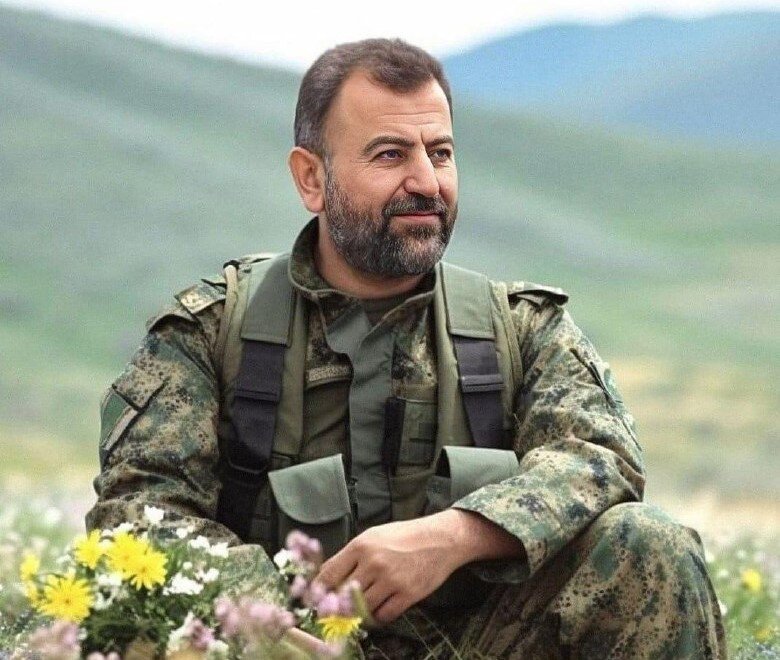Is the time ripe for resistance front to rethink strategy?

In a powerful speech in Beirut on August 28, 2023, Sayyed Hassan Nasrallah, the leader of the Hezbollah movement in Lebanon, said, “Any assassination on Lebanese soil against a Lebanese, Syrian, Iranian or Palestinian will be met with a decisive response. We will not tolerate this, and we will not allow Lebanon to become a new killing field for Israel.”
Exactly four months later, a massive explosion ripped through the southern suburbs of Beirut. The news of this explosion quickly made headlines in the region. The cause: An Israeli drone strike assassinated Hamas’s deputy political leader Saleh al-Arouri. The Palestinian Islamic Resistance Movement, Hamas, officially confirmed the martyrdom of Saleh al-Arouri and two other commanders during the Zionist attack.
Who was al-Arouri?
Saleh Mohammad Suleiman al-Arouri (Abu Mohammad) was one of the political and military leaders of the Palestinian resistance movement, serving as the deputy head of the political office of Hamas, with a role in the establishment of the military wing of Hamas, the Qassam Brigades, in the West Bank. He spent 15 years in the prisons of the Zionist regime, then was exiled from Palestine and lived in Lebanon. Al-Arouri joined the Hamas movement in 1987 and became a member of the political office of Hamas in 2010.
Saleh al-Arouri was a prominent figure in the Qassam Brigades, and after years of imprisonment from 1992 to 2011, he was released in the famous "Gilad Shalit" exchange - also known as Wafa al-Ahrar - alongside many other Palestinian leaders, including Yahya Sinwar, from the prisons of the Zionist regime.
Fluent in Hebrew, he quickly climbed the ranks of leadership in Hamas, serving as the head of the Hamas office in Syria, Turkey, and Qatar, and later taking on the responsibility in Lebanon.
He led Hamas operations from Lebanon, triggering heightened concerns within Israel's security apparatus. According to Israeli newspaper Haaretz, the Tel Aviv regime had reportedly been tracking al-Arouri since 2015. Before the war began on October 7th in Gaza, Israeli Prime Minister Benjamin Netanyahu had threatened to kill him. The United States had also labeled al-Arouri as a “global terrorist” in 2015 and issued a $5m reward for any information on him.
The assassination of al-Arouri is significant for various reasons. It marks the second targeted killing by Israel after the “Al Aqsa Storm” operation, shortly after the assassination of Seyyed Razi Mousavi, a high-ranking official of the IRGC’s Quds Force in Syria. This indicates Israel's attempt to regain its diminished deterrence, intelligence, and military capabilities after the attacks by Hamas on October 7th.
Seyyed Razi Mousavi, one of the commanders of the IRGC’s Quds Force, was in charge of providing logistical support to the resistance front in Syria. On the other hand, al-Arouri acted as a link between Hamas, Islamic Jihad, Hezbollah, and Syrian and Iranian forces. The targeted assassinations of these two high-ranking officials, one in Damascus and the other in Beirut, along with the effort to eliminate key members of the Axis of Resistance, suggest a shift in Israel's approach from military to intelligence-focused strategy in dealing with this front. These recent operations may signal the beginning of a series of assassinations targeting resistance leaders, including those from Hezbollah and Hamas.
On the other hand, the Tuesday assassination coincided with indirect ceasefire negotiations between Israel and Palestinian groups, signaling that the main political and military body in Tel Aviv has no willingness to bring an end to the war.
Moreover, as Tel Aviv's supporters admit, Netanyahu and the Israeli regime's army have fallen short of achieving their stated objectives in the Gaza Strip, including the elimination of Hamas. The regime talks about a change in its strategy in the Gaza war, claiming the army is preparing for a military strategy shift in the Gaza Strip, intending to steer it towards a long-term operation.
It is predicted that after the assassination, the resistance front will seek to fill its intelligence and security gaps before any reaction or response to prevent more human casualties from targeted assassinations against its senior officials.
Given the firm position of Sayyed Hassan Nasrallah, mentioned at the beginning of this article, and other resistance leaders, Hezbollah and Hamas are expected to provide a decisive response to Israel's recent assassinations to thwart what the regime perceives as a transition from a military strategy to assassination strategy, taking the initiative away from Israel before witnessing such targeted assassinations in other capital cities of the resistance front.
Leave a Comment